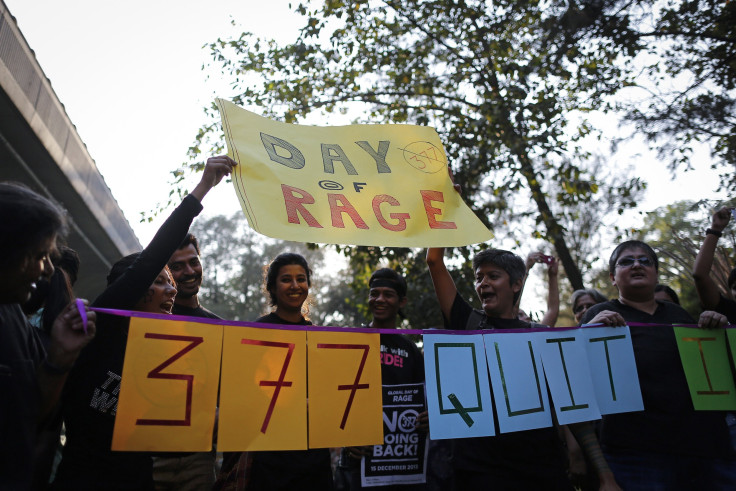India's Supreme Court Strikes Down Section 377, Legalizes Homosexuality

In a historic verdict Thursday, India’s top court decriminalized consensual sex between homosexuals and struck down Section 377 of the Indian Penal Code (IPC).
“Section 377 results in discrimination and is violative of constitutional principles. Consensual sex between adults in private is not an offense. The court must try to protect the dignity of every individual of the society, including people from LGBT community. Sexual orientation is natural and people have no control on it,” the court said.
The apex court said the momentous walk of freedom can only be realized when everyone acknowledges that the LGBT community possesses the same rights as others.
“We have to bid adieu to stereotypes and prejudices,” the court said adding that privacy was a matter of choice while “prejudice and social stigma still affects a certain section of society.”
Chief Justice of India (CJI) Dipak Misra said, “The ideals of individual autonomy must be preserved. We have to bid adieu to stereotypes and prejudices. Constitutional morality must guide us all,” local daily News 18 reported.
The 158-year-old colonial law under Section 377 of the IPC criminalizes consensual gay sex.
"Human tendency to love among LGBT community members had been caged by a 158-year-old law, Sec 377. Though 87 yrs after the law was born India got independence, Legislature did not take measures to give LGBT community the equal rights for sexual relation,” the court said.
While reading out the verdict, Justice Dhananjaya Chandrachud, who was a member of the five-member panel that gave the judgment, said the denial of the right to sexual orientation is akin to denial of right to privacy.
Justice Indu Malhotra, another member, said, “history owes an apology to members of LGBT community and their families for ostracisation and persecution they faced because of society's ignorance that homosexuality is a natural trait; its penal suppression infringes a host of fundamental rights.”
Post the verdict, Meenakshi Ganguly, South Asia director for Human Rights Watch, said, “Thanks to all that fought for this, braving the worst sort of prejudice. This is a good day for human rights.”
Section 377 of the IPC states “Whoever voluntarily has carnal inter¬course against the order of nature with any man, woman or animal, shall be punished with imprisonment for life, or with imprisonment of either description for a term which may extend to ten years, and shall also be liable to fine.”
In 2009, the Delhi High Court described Section 377 as a violation of the fundamental rights guaranteed by the Constitution. Following the verdict, several religious groups moved the Supreme Court for a direction against the verdict.
In 2013, the top court overruled the Delhi High Court’s judgment and reinforced criminalization of homosexuality. This ruling was seen as a setback to human rights and was criticized by the LGBT community.
In January this year, the Supreme Court said a larger group of judges would reconsider the previous judgment and examine the section’s constitutional validity.
“Earlier decision of the Supreme Court in 2013 requires to be reconsidered because of the constitutional issues involved and we think it appropriate to send this to a larger bench,” the CJI said at the time.
© Copyright IBTimes 2024. All rights reserved.





















